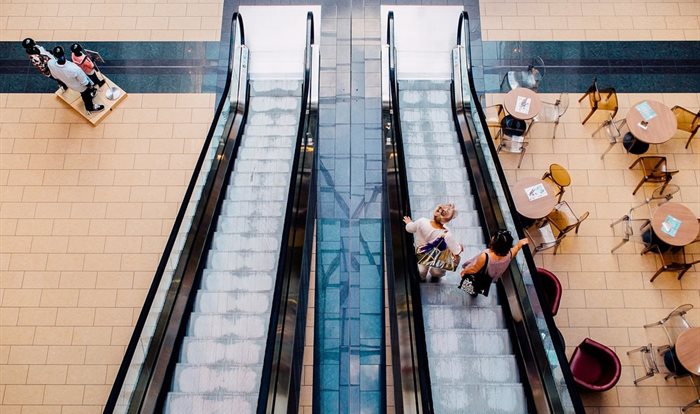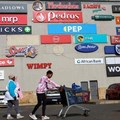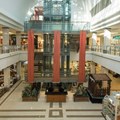
Subscribe & Follow
Promising trading density and growth at SA shopping malls

According to the Clur Shopping Centre Index, trading density performance and growth at South African shopping centres in 2022 was the highest in four years. The index is produced by Clur International and derived from The Clur Report, an asset management industry standard, tracking performance for listed and unlisted property funds at more than 4 million m
“Super-regional and regional shopping centres have maintained the highest trading density levels since mid-2018, when the Clur indices were introduced. Smaller centres show a consistent improvement. In 2022, super-regional centres showed the steepest climb in trading density levels,” she says.
“These major centres grew year-on-year trading density by 13.6% to R41,103/m² in 2022, outperforming annual inflation by 6.7%. In particular, super-regional centres achieved trading density of R45,933/m², a 17.7 % increase and outperformance of CPI by more than 10%. For the Clur index for all centres the growth was 11.5% to R39,155/m², 4.6% better than CPI in 2022. Small regional and smaller centres grew trading density by 6.9%, on par with inflation, to R35,057/m².”
Importance of physical retail
Overall, the renaissance theme in retail property after the Covid-induced downturn, put forward by Clur in a presentation to the industry last year, continued in 2022, with a further growth surge in centre performance.
“Significantly, the trading density index for the combined November-December period for all centres was R52,841/m², an increase of 9%. The index for the rest of the year – January to October- was R36,372/m², an increase of 12.3%. This underscored a previously noted pattern of festive season business driving trading density levels with the rest of the year boosting growth levels.
“These results highlight the extent of consumer support for physical retail space and the important role the sector plays in supporting communities as well as the economy. They also show that agility in response to shifting consumer dynamics and tailored tenant mixes are helping drive the improvements in trading densities.
“These factors are rewarding astute asset managers who recognise the fundamental differential has to be the experience that is offered within the bricks and mortar of the physical shopping centre. Moreover personal touch, and an important relationship economy, underpinned by excellent service, customer knowledge, thoughtfulness and philanthropy are increasingly to the fore as people value these aspects highly after isolation and ongoing hard times.”
Lifestyle-oriented tenant mix
Clur says new leasing activity suggests a shift from a survival to more of a lifestyle-oriented tenant mix as the Covid-19-related hard rules and their dire implications become a distant memory.
“There’s been a distinct uptick and renewed confidence in apparel, with the segment taking up about a third of new lettings in terms of gross lettable area (GLA). Specific activity is seen in unisex wear, athleisure wear, shoes and men’s wear. Unisex wear outlet sizing shows a cautious approach, with stores smaller than 500m² currently being dominant, and are often smaller than 250m². Women’s wear stores show a conservative approach with most being below 250m².”
The homeware, furniture and interior as well as hardware categories continue to be popular and see growth, with about 20% of new lettings GLA going to this segment, says Clur.
“There’s a specific focus on trendy kitchenware, décor inspired soft furnishings and lighting, beds and DIY. Speciality stores are a key theme, making up about 15% of recent lettings GLA, showing diversity across butchery, greengrocers, oriental foods and spices, sweets and chocolates, tea and coffee specialists, pet stores, gifts, tobacconists, vape shops as well as toys.
“Food service also features prominently, with a diverse spread of mostly fast casual dining formats and fast food stores taking up about 10% of the new lettings GLA. These are more or less equally represented in terms of store numbers, with a GLA weighting toward fast casual dining.”
Clur says department stores, at about 8% of new lettings GLA, have changed their form. Major discount department stores have gained traction in recent years, whilst traditional department stores are mostly being pared back to a more successful mini format.
“Health, wellness, beauty and grooming remains buoyant, contributing in the region of 7% to new lettings GLA. An already strong technology sector continues to grow, with a number of smaller, but high-powered stores spanning cell phones, electronics and games. This sector typically yields one of the highest trading density and growth levels across categories.
“Banking, medical and convenience services play an ongoing important role, whilst the rest of the new lettings activity is peppered with accessories, jewellery, optometrists, sunglasses, books, stationery and some luggage stores,” she concludes.
Related
Liberty Two Degrees shines again at the 2024 Footprint Awards with 22 accoladesTaryn Louche Creative 26 Feb 2025 Clur Index: 2024 ends on a high note for SA's shopping centres 18 Feb 2025 Shopping centre rental growth closing gap on CPI - Clur Index 25 Nov 2024 Shopping malls and retail centres redefine retail in South Africa Fayaz Mohamed 25 Nov 2024 Community and smaller shopping centres shine as new retail frontier emerges - Clur Index 6 Sep 2024 Are SA’s malls fit for the communities they serve? Kagiso Mahlangu & Nomaswazi Nkabinde 5 Sep 2024 #WomensMonth: Melinda Isaacs, seasoned development executive at Liberty Two Degrees Evan-Lee Courie 26 Aug 2024 After the Bell: What retail apocalypse? More shopping malls planned in SA Ray Mahlaka 7 Aug 2024










